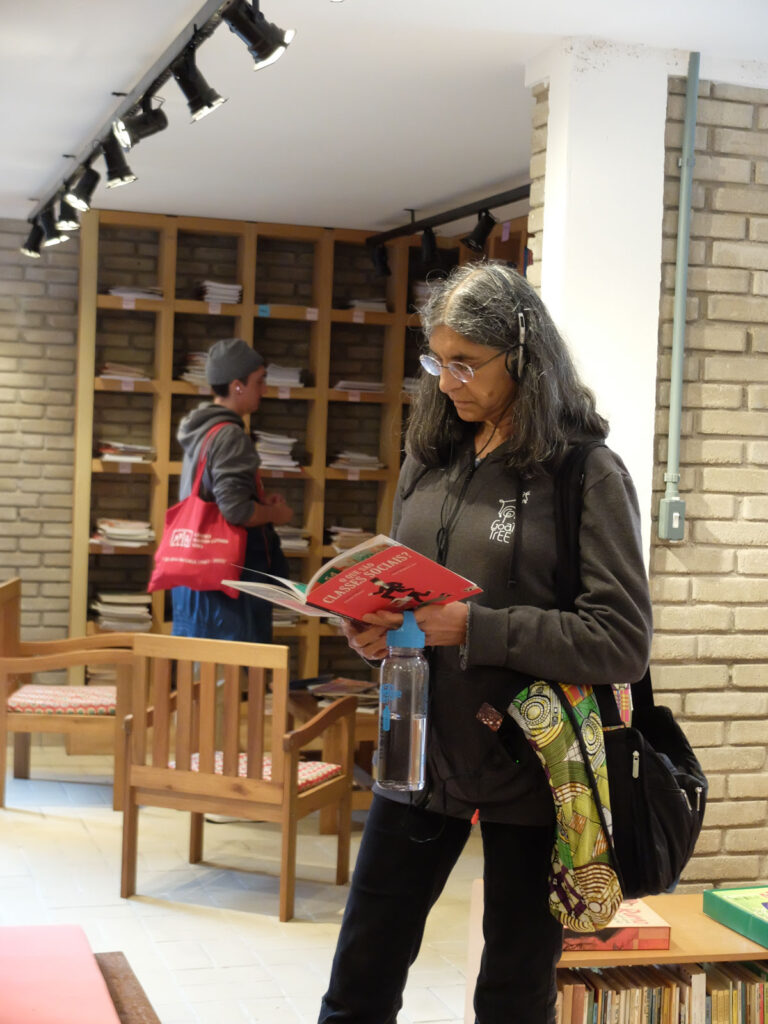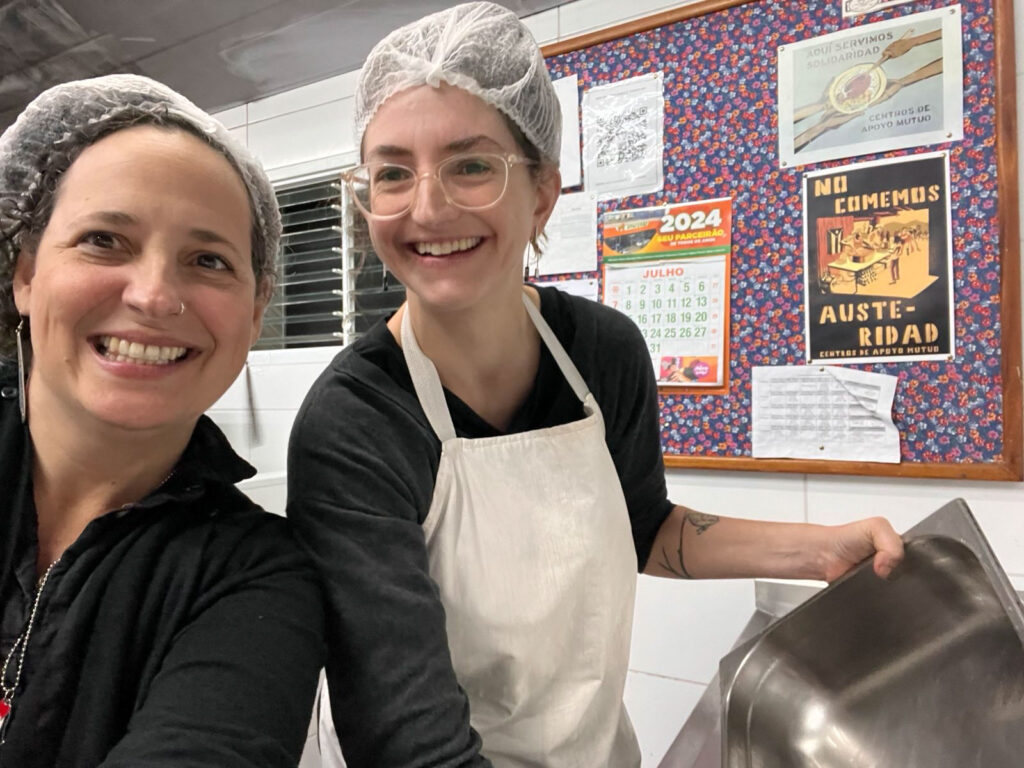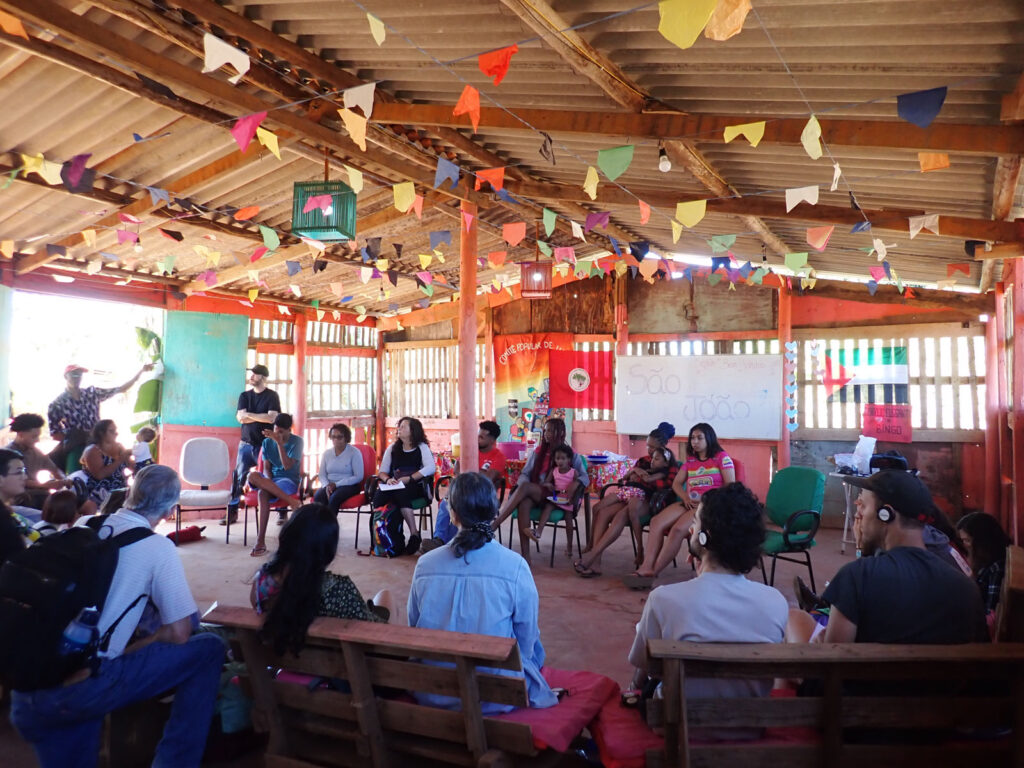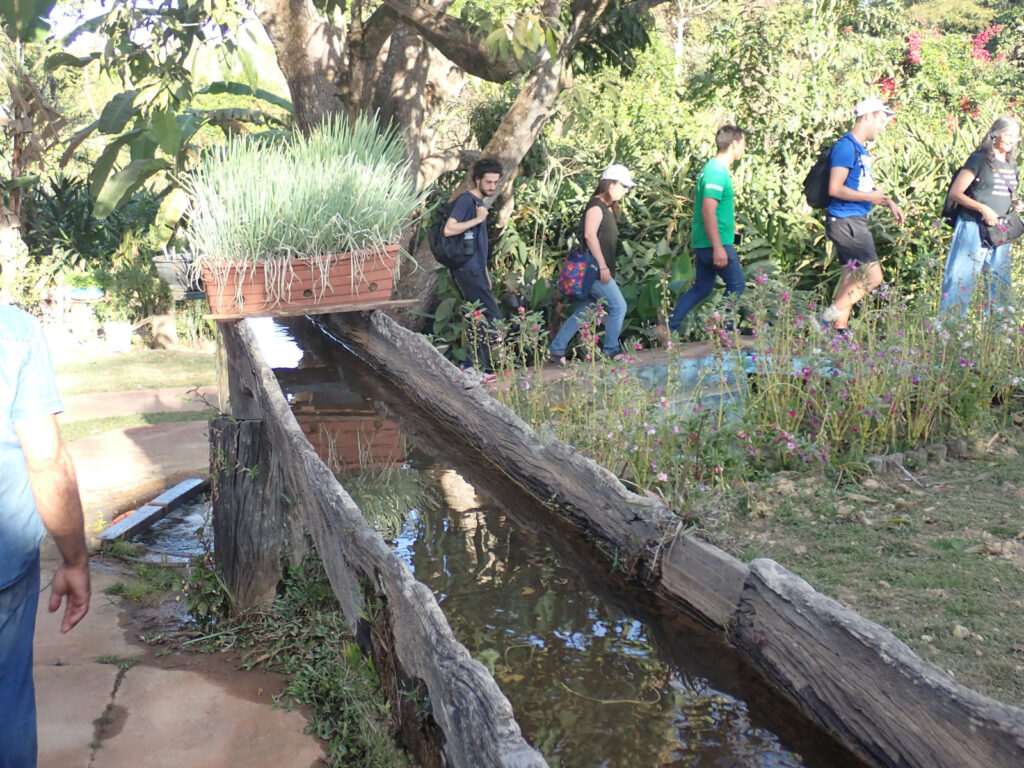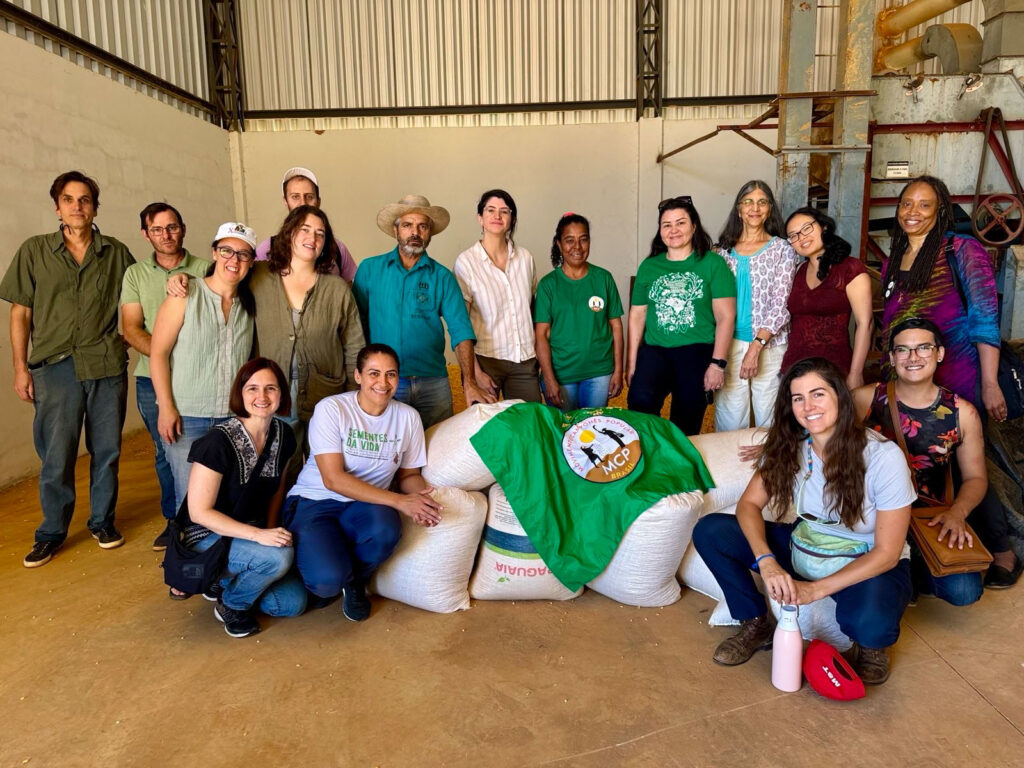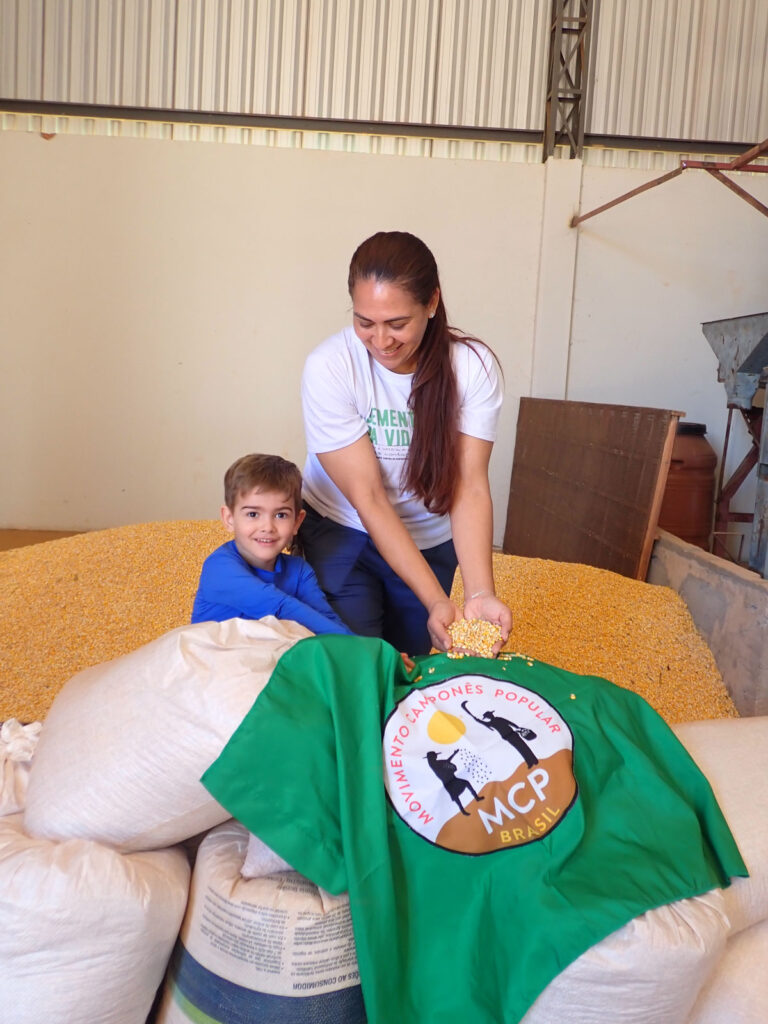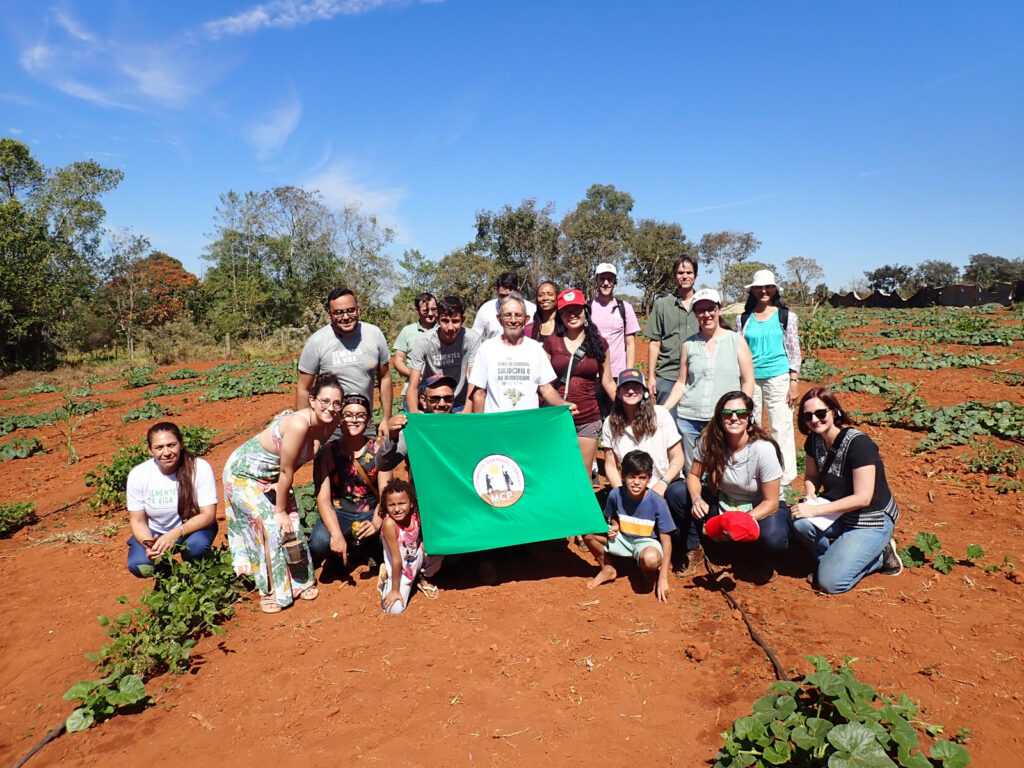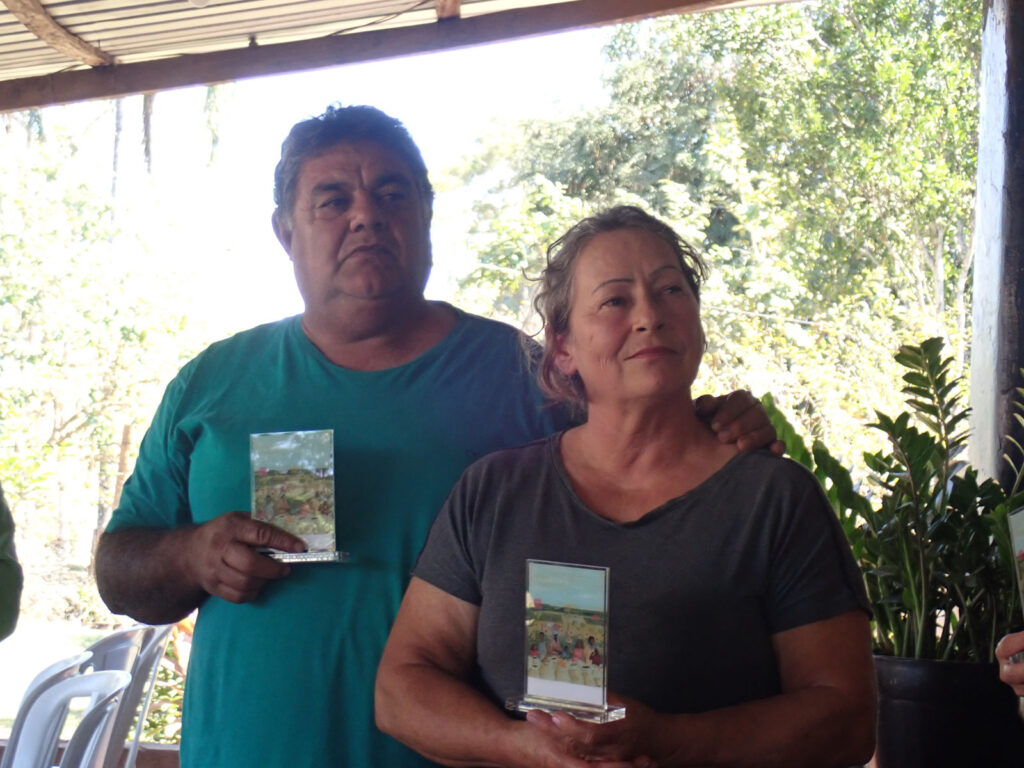Resistance From Within the Belly of the Agro-Industrial Beast
Reflections from a Delegation to Brazil
Brazil is polarized. The country is home to some of the world’s most vital ecosystems, but also to a massive agro-industrial complex threatening their very existence. It is home to some of the most unequal land access in the Americas, but also to some of the world’s largest and best-known social movements of peasants and rural workers — driving forces in the advancement of food sovereignty and agroecology globally.
Until recently, Brazil was under the thumb of right-wing authoritarian populism, a local reflection of dangerous global trends. Now movements are working to build back, and ultimately strengthen, democratic institutions that were systematically dismantled under the prior regime. Doing so is more urgent than ever, as the country grapples with ever-intensifying impacts of the climate crisis — most recently in the form of unprecedented flooding in the south — and with hunger, poverty, and a host of other social and environmental issues.
This past July, a group of Grassroots International staff members and donor-activists traveled to Brazil to witness these and other dynamics first-hand and to connect directly with some of our long-term social movement partners on the frontlines of resistance. The original plan had been to attend the 7th national congress of the Movimento dos Trabalhadores Sem Terra (Landless Workers Movement, MST) in Brasilia, followed by visits to sites of the MST and another movement partner, Movimento Camponês Popular (Popular Peasant Movement, MCP), in surrounding areas. When the MST postponed its congress to support flood recovery in the south — in a display of the solidarity and service that are hallmarks of the movement — all parties involved agreed that the delegation should still happen. The following are some initial reflections by participants, accompanied by photos.
Florestan Fernandes National School
Although the MST’s national congress was postponed, delegates got a glimpse into the movement’s organizing at the national level through a visit to its Florestan Fernandes National School (ENFF). Based in Sao Paulo, the school operates in the tradition of Brazilian educator Paulo Freire, who promoted popular education for liberation. It serves as a key site for the political formation that is critical to the cohesion and efficacy of a national social movement numbering in the hundreds of thousands of members.
While at ENFF, we took a deep dive into the 500-year history of land struggles in Brazil out of which the MST was born, and into the MST’s vision for popular agrarian reform, which has evolved over four decades of struggle to extend far beyond equitable land distribution. We also got a taste of daily life at the school, from participating in the morning mística (an interactive ceremony of sorts that is better experienced than defined) for political and spiritual grounding, to rolling up our sleeves and donning hairnets in the school’s collectively run kitchens. Touring the campus, with its productive gardens, children’s space, garden for contemplative reflection, library (with more than 40,000 titles, as well as art exhibits and a children’s section), Frida Kahlo art space, courtyard for gatherings, bar for parties, memorial spaces, wellness house for physical and mental wellbeing, shop featuring MST-made products and gear, and so much more, it almost felt as if there’s nothing the MST hasn’t thought about or attempted.
“As an adult education teacher, I was inspired by the emphasis that the social movements put on education and experimentation. They organized education on such topics as history (including land grabbing and resistance), economics, gender relations, and agrochemical poisoning. They had established relationships with universities and encouraged their members to go on to undergraduate and graduate programs, for example in biology, economics, and law. At every farm, they were constantly experimenting with different crops and irrigation methods to see what was most effective, and they shared their experiences across families and communities, and even internationally.” — Mina Reddy
Seeing the MST in Action
As awe-inspiring as our visit to the national school was, it was a deeply humbling experience to enter spaces of struggle for the MST, including an encampment that has been struggling for more than a decade for a collective title to the land, against great odds, and two settlements (what encampments become after collective titles to the land are won) where the MST is actively working to turn its vision of popular agrarian reform into realty. Three themes running strong across each space were the MST’s practice of nurturing land damaged by industrial agriculture back to life through intricate practices of agroecology; collectivity in all levels of decision making and organizing; and a boundless spirit of solidarity, both toward fellow Brazilians and toward other oppressed peoples everywhere.
Prior to this trip, some of us were already aware of the major role MST had played at the height of the COVID pandemic in distributing more than 6,000 tons of food to urban communities in need. But actually seeing some of the spaces where this food had come from — where families are contending with drought, arson, pest attacks, and a host of other challenges to provide a modest amount for subsistence — provided a much deeper understanding of the type of sacrifice and commitment behind such acts of solidarity.
“I had been feeling stuck, struggling to imagine ways out of racial capitalism toward a regenerative economy. Learning about and experiencing the MST’s theory of change blew my mind and heart wide open. Their approach is so holistic, encompassing the range of human needs — from securing land for growing food and finding shelter, to cultivating culture that respects and protects women, to building people power that advances systemic change. I came home eager to apply agroforestry principles in my high desert garden and to nurture authentic community with my neighbors and comrades. Again and again, MST folks we met shared that collectivism is hard but possible. I’m holding onto that possibility for all of us and walking in solidarity with social movements who are leading the way.” — Joelle Chase
“I feel internal shifts from my experience in Brazil with Grassroots International. The anti-capitalist analysis from MST and MCP’s (in both their organizing and agroecology practices) challenged me to grow in the way I make sense of the material conditions around me. One of the most powerful days was when our delegation visited a MST encampment in Brasilia that is in a 12-year fight for access to land. I was inspired by the encampment’s intergenerational struggle for land, their commitment to justice, and their kindness to us. I look forward to the day they win!” — Reed Young
“While I have witnessed community self-determination many times, I’ve never seen solidarity across communities and countries like I saw from the social movements in Brazil, especially MST. From farmers feeding organic food to people living in the poor urban peripheries, to permanent delegations around the world sharing about agroecology, to inter-movement collaboration on actions and formation within Brazil, to sending food to communities in crisis in Palestine, comrades in the MST are deeply generous with their time and limited resources. Their commitment to solidarity felt like seeing Fannie Lou Hamer’s famous quote “nobody is free until everybody is free” in action, and has inspired me to push myself to show up in international solidarity in more selfless ways.” — Eliza Parad
From within the Belly of the Agroindustrial Beast
While the MST works with landless families, the MCP works mainly with families struggling to hang on to their family farms passed down over generations. The family farms of the MCP members we visited in the state of Goias appeared like agroecological islands in a sea of industrial agriculture. The lines where diverse family farmed polycultures ended and industrial monocultures began were glaringly clear, pointing to the uphill battle that the MCP, like the MST, is facing. While Brazil has some progressive policies in support of family farming, these pale in comparison to its support of industrial agriculture, and this holds true across left and right governments alike. Propping up pro-agribusiness policies, MCP explains, is a deep seated propaganda campaign in Brazil asserting that industrial agriculture is critical for feeding the population, while in fact it is largely geared toward exportation.
“We import things that could be produced here, while at the same time we produce food for export… And this is while 35 million Brazilians face hunger.” MPP’s proposal is for supportive policies and conditions for peasants to produce healthy food for the Brazilian people — food free from agrochemicals that are currently poisoning rural communities, consumers, and entire ecosystems. “It’s not a coincidence that here we have drug stores on every corner because Bayer brings both poison and medicines.” Key to MCP’s vision is for peasants to have control over their own seed supplies as a fundamental precondition for food sovereignty. MCP is working toward this by supporting agroecological corridors stewarded by “seed guardians” as well as scaling up the processing and distribution of peasant seeds, both of which we had the privilege of witnessing in action.
“At the beautiful agroecological farms we visited, the people who lived and worked there were aware of their important role not only in feeding their families, but in providing healthy food to the wider community while fighting poisonous chemical contamination and the devastating effects of climate change. We need each other to build a healthy world.” — Mina Reddy
International Solidarity against the “Agro-Hydro-Mining Industrial Complex”
As if Brazil’s rural communities did not have enough to contend with from industrial agriculture, on our last day with MCP, we had the gut-wrenching experience of visiting communities in Goias impacted by the mining of phosphate and niobium. The phosphate, mined by the US-based corporation Mosaic, is a key ingredient in the fertilizer upon which Brazil’s industrial agriculture depends, while the niobium, mined by a Chinese company, is a semiconductor with a wide variety of industrial applications, including in so-called “clean energy.”
As one community member explained, “Mining is the worst neighbor that we could have had.” Among the impacts of mining detailed by those we met with were skyrocketing rates of cancer and respiratory diseases, including in children; devastating loss of production; scarcity of water; and water so poisoned that it kills fish and causes cow fetuses to abort. In the latest of an onslaught of offenses, one of the companies is now planning to build its latest mining waste pile (the landscape we drove through was dotted with hills composed of mining waste) atop the water source of multiple communities who are already suffering from the mining itself.
We left the communities with a clear call for international solidarity, both against this latest proposed mining waste dump and against the ongoing environmental and human rights offenses of the mining companies more broadly. Grassroots is in conversation with MCP about next steps. Please stay tuned.
“At one of the last communities we visited that are part of MCP, we heard from a woman about the very high cancer rates that are a result of the mining happening in the region. It’s an example of transnational corporations continuing to extract and moving without any care or diligence around the impact they’re making. She told a story — and we also got to see visuals and mapping work — that really showed the ecological devastation that these corporations are making. Nonetheless, these communities stand up strong with their heads held high… with a belief that ultimately we will win.” — Casimiro Peña
“Grassroots International has talked about its long-term accompaniment of movements, and I’ve seen that on this trip… The most successful movements we’ve seen in Brazil are ones that have been very durable — they’ve been around for 10, 15, 30, 40 years. I want to think about what that means for me personally as a young person of wealth — what it looks like to be in long-term accompaniment in solidarity with movements in the Global South…I’m also thinking about what solidarity movements look like…and thinking about what strategies do we really need to have the power we need to confront transnational agribusiness and international financial capital to support the work that organization like the MST and MCP are doing here on the ground in Brazil.” — Matthew Mellea
“The embrace that the communities demonstrated to us really is an indicator of the way that Grassroots has continued to show up, and show up when it counts…It’s only through long-term commitment where real trust is established, and through trust is where communities are willing to show you the messiness of the work. And if we don’t look at the messiness, we’re never going to be able to really cut through and find the solutions, cohere, connect, and coalition build. This trip really brought that into high clarity.” — Casimiro Peña
Special thanks to Olivia Meehan and Kelly Garvy for their contributions of photos to this piece.





